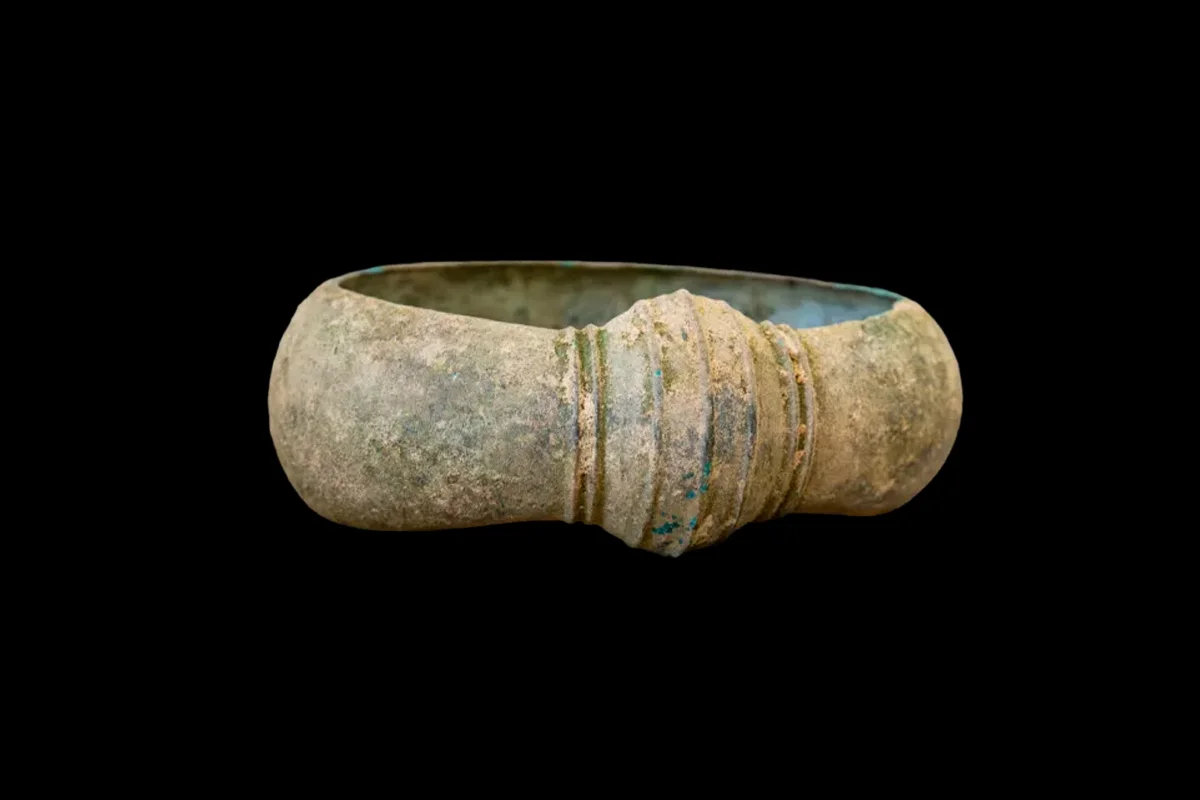Detectorists from the Kociewskie Poszukiwacze Association have discovered a perfectly preserved Bronze Age bracelet, described by experts as unparalleled.
The bracelet was discovered in the forests of the Kociewie region in northern Poland when a member of the group detected a strong signal, prompting him to dig a small hole.
At a shallow depth a perfectly preserved bracelet made from bronze was revealed, weighing in at 267 grams.
Archaeologists from the Pomeranian Voivodeship Conservator of Monuments have dated the object to around 3,000-years-ago during the European Bronze Age.
Cezary Modrzejewski from the Kociewskie Poszukiwacze Association told the Polish Press Agency (PAP) that the bracelet was reported promptly to authorities, as required by Polish law.
Under current regulations, such discoveries are considered property of the State Treasury and must be handed over to the authorities. While monetary rewards are not yet available, successful finders may receive an official diploma from the Ministry of Culture and National Heritage in recognition of their contribution to preserving Poland’s history.
The very next day, the group recovered two bronze fibulae (ancient brooches) and a fragment of another piece of jewellery from the same site, suggesting that the location may have once been a place of significant cultural or ritual activity.
The ancient bracelet will soon undergo professional analysis and conservation before going on public display at the Archaeological Museum in Gdańsk, where it will join the region’s growing collection of prehistoric treasures.
Header Image Credit : M. Tymiński/WUOZ
Sources : PAP





